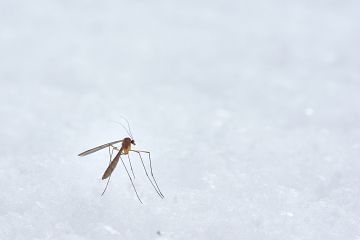New research points to Microsporidia as a potential malaria control tool
7 May 2020
A team of scientists have published new research showing that the use of a specific microbe, Microsporidia, may be able to limit malaria parasite infection in one of the important vectors of the disease in Africa, Anopheles arabiensis.
The research, published in Nature Communications, also shows that Microsporidia-infected female mosquitoes can pass the microbe on to their offspring, which contributes towards spreading the infection among wild populations. The study shows that this can be achieved without killing host mosquitoes, thereby limiting the ecological impact of the intervention and increasing the spread of Microsporidia to female mosquitoes. This potentially creates opportunity for mass-producing artificially-infected mosquitoes.
Malaria Consortium’s view on this research
Malaria Consortium is interested in this significant research. However, further studies will be required to confirm the findings with larger samples of mosquitoes and in other geographic areas, possibly also other important malaria vector species as well.
The potential use of the findings in malaria control will also require substantially larger-scale field studies to demonstrate the efficacy and cost-effectiveness of any strategy based on the observed effects, and to understand the operational challenges in several settings. It is likely that this approach will only be applicable for a relatively small geographic area, in which the intervention could be acute and targeted. Application over larger areas would likely be unsustainable.
Acceptance of the approach among national governments and communities will also have to be assessed. If the results remain significant, this will be a useful additional and complementary tool to existing WHO-recommended interventions.
The research can be contrasted with the use of Wolbachia, which some studies have shown reduces the ability of infected Aedes aegypti mosquitoes to transmit dengue. Infected mosquitoes then breed with the wild mosquito population creating a potentially self-sustaining control method.
The challenge is to convert promising early research into a proven public health intervention through rigorous assessment of its epidemiological impact.
Latest news
- International summit calls for AMR accountability in public health interventions21st March 2024
- Global SMC community celebrates new milestone at SMC Alliance Annual Meeting in Nigeria6th March 2024
- Scaling up key interventions could halve pneumonia-related childhood mortality13th February 2024
- Malaria Consortium and eGov Foundation join Mozambique’s national malaria programme to digitalise seasonal malaria chemoprevention campaigns8th February 2024
- World’s first malaria vaccine rollout launched in Cameroon22nd January 2024
- Digital solutions driving equitable access to health6th December 2023